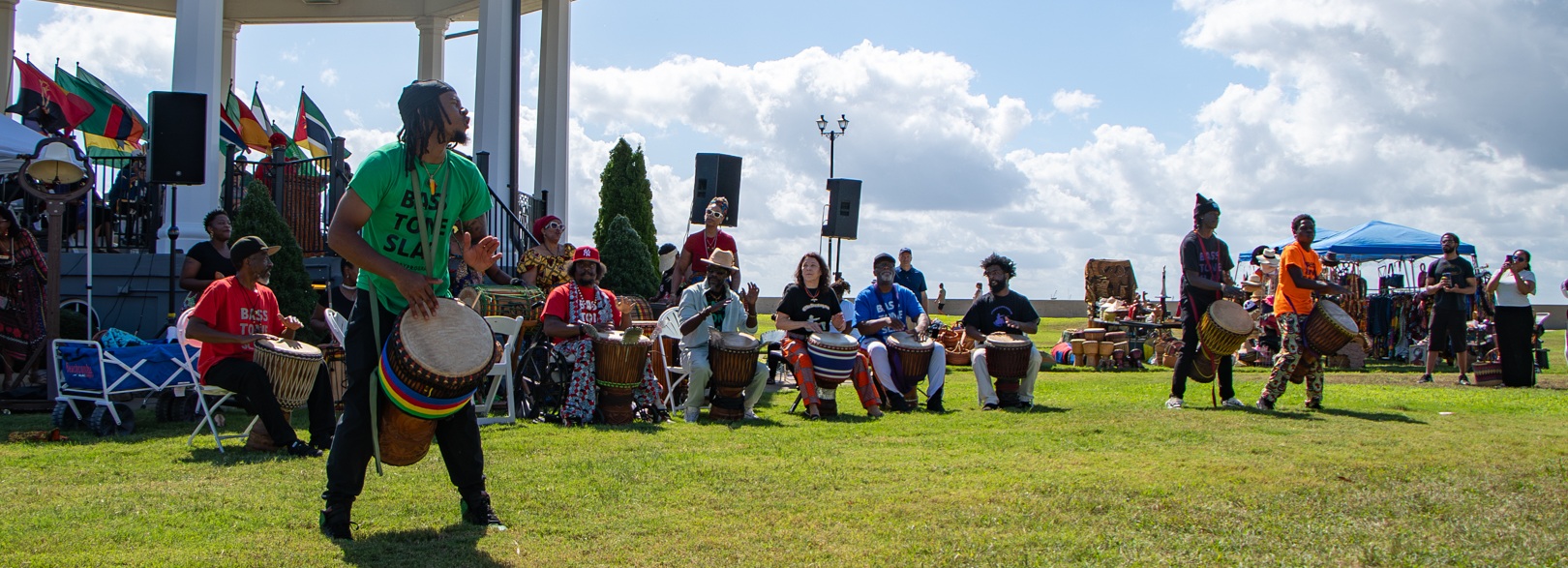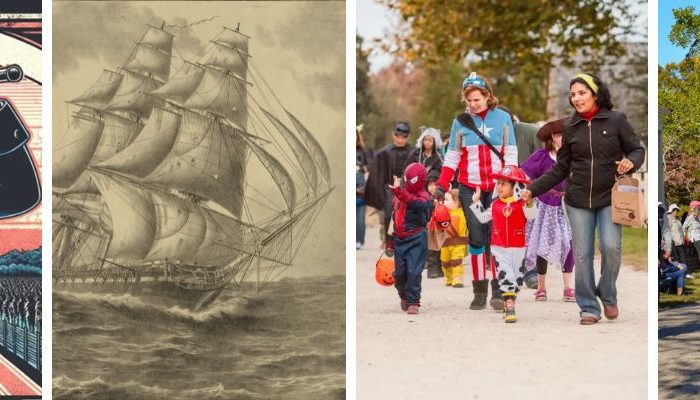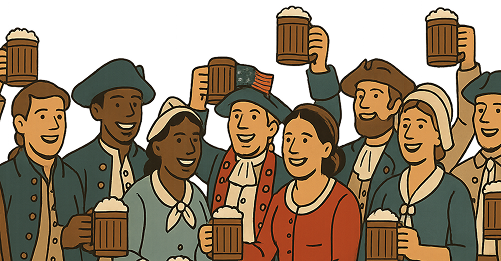Commemorating History, Honoring Ancestors, and Confronting Legacies
African Landing Day Remarks
Senator Mamie E. Locke, VA250 Vice-Chair
Good morning, and I am also excited to extend a warm welcome to everyone of you for joining us today for this commemorative event. Thank you so much for being a part of history with us today.
In 1619, a pivotal moment in the history of what would become the United States unfolded at Fort Monroe, then known as Point Comfort, in the Virginia Colony. The arrival of the first Africans to English-speaking North America marked the beginning of a profound and enduring chapter—a story of survival, resilience, suffering, and the unbroken pursuit of dignity and freedom. As we mark 406 years since that fateful landing, it is fitting to reflect on the gravity of this anniversary, the enduring legacy of the William Tucker Family and the ongoing dialogue about the McMahon family’s connection to slavery in Virginia.
The year 1619 marked the introduction of the African presence in the English colonies and the birth of a centuries-long system of racialized chattel slavery, one that would shape the social, economic, and political fabric of America for centuries.
Commemorating 406 years since this landing at Fort Monroe demands not just a remembrance of the past, but a reckoning with its repercussions. Over the centuries, the descendants of those first Africans and all who followed have contributed immensely to the building of the nation, often in defiance of unimaginable hardship. The annual observances at Fort Monroe are more than mere ceremonies; they are acts of collective memory, of healing, and of hope for a more just future.
In recent years, Fort Monroe has become a symbolic and literal gathering place for those seeking to honor ancestors and promote understanding. The site’s recognition as a National Monument has elevated its status as a place of historic and spiritual significance. The 406th commemoration, like those before it, is a reminder that history is not static—it is alive in the stories we tell, the families we honor, and the justice for which we continue to strive.
Within this larger narrative, the story of the Tucker family—descendants of William Tucker, the first documented African child born in English North America—emerges as both unique and emblematic. Born in 1624 in the Virginia Colony, William Tucker’s life bridges two worlds: the trauma of his parents’ lives and the enduring spirit of his descendants.
The William Tucker Family 1624 Society stands as a testament to the power of memory and the importance of heritage. The Society’s mission is to locate, celebrate, and unite the descendants of William Tucker and to educate the broader public about the early African presence in Virginia. Through genealogical research, historical interpretation, and cultural events, the Society ensures that the contributions and sacrifices of African ancestors are neither forgotten nor marginalized.
The Tuckers’ story is intertwined with the very origins of African American identity in the United States. The family’s history is not just one of survival, but also of agency—the act of carving out space for existence, family, and tradition in a society that so often denied those very possibilities. The Society’s work in genealogical research and public education helps to restore dignity and visibility to ancestors whose stories have too often been omitted from mainstream narratives.
In honoring William Tucker and his descendants, we recognize not only the pain of forced migration and bondage, but also the resilience, creativity, and community-building that have defined the African American experience for over four centuries. The Society’s commitment to education and preservation strengthens the connection between past and present, inviting all to participate in the ongoing journey toward truth and reconciliation.
As we reflect on the African landing at Fort Monroe and the formation of early African-American lineages, we must also confront the realities of those families who, by choice or by inheritance, were entangled in the institution of slavery. The McMahon family, like many others in 17th- and 18th-century Virginia, is representative of the white landholding class whose fortunes were often built, directly or indirectly, upon the labor of enslaved Africans.
Her name was Jennie. She was a slave, born in 1780, maybe in Tennessee. In 1814, she had a daughter, Gracie Bynum, born in Virginia, possibly in Rockingham County. Jennie was my fourth great grandmother. Gracie was my third great grandmother. It is through Gracie, that the surname McMahon enters the picture. What is documented is that Gracie had a son in 1851 whom she named Jack McMahon. The father of Jack is Robert McMahon, the only son of William McMahon and Rebecca Patton of Rockingham County, Virginia. Gracie was a slave. Robert, son of the slaveowner. At some point, the McMahons move to Courtland, Lawrence County, Alabama which is where my great grandfather Harvey McMahon and grandfather, Robert McMahon were born. Not sure how or when my grandfather leaves Alabama, but my mother, Amanda, was born in Lorman, Mississippi, not far from the Mississippi River, Mississippi/Louisiana state line.
The McMahon family’s connection to slavery in Virginia is one that echoes the complex and painful history shared by many American families. Records show that the McMahon family owned land and, alongside it, enslaved individuals whose forced labor enriched their estates and sustained their social standing. Records also show that William McMahon applied for membership in the Sons of the American Revolution. So, he was a patriot, fighting for his disentanglement from Britain while owning people. The legacy of such families is double-edged: while they may have left behind material wealth, they also left a burden of moral responsibility—a debt to history that cannot be repaid, but must be acknowledged. The McMahon heritage is Scotch-Irish, but DNA puts our family lineage in northern Angola, descendants of the Mbundu people.
In today’s climate of historical reckoning, descendants of enslavers are increasingly called upon to engage in the realities of their ancestors’ actions. For the McMahon family and others like them, this involves not only grappling with family histories but supporting efforts toward greater historical transparency and restorative justice. Acknowledgement, education, and open conversation are essential steps along the path to healing.
The juxtaposition of the Tucker and McMahon family histories serves as a microcosm of the broader national dialogue: one family’s history marked by struggle and resistance, the other by complicity and benefit. Both stories are essential to a fuller understanding of America’s complex past and the ongoing quest for equity and reconciliation.
Reflecting on 406 years since the first African landing at Fort Monroe, our challenge is twofold: to honor the memory of those who endured the unimaginable, and to reckon with the legacies of those who profited from their suffering. The intertwining stories of the William Tucker Family 1624 Society and the McMahon family illustrate the enduring impact of slavery on American life and consciousness.
The process of reconciliation is neither easy nor swift. It requires courage, humility, and sustained commitment from individuals and communities alike. Organizations like the William Tucker Family 1624 Society pave the way for meaningful engagement with the past, while families with ties to slavery are increasingly finding ways to contribute to restorative justice and educational initiatives.
Memorials, family reunions, public lectures, and historical markers all play a role in making the invisible visible. The work of grassroots societies, scholars, and descendants helps to weave a richer and more inclusive tapestry of American history—one that acknowledges pain and celebrates perseverance.
As we pause to reflect on the 406th African landing at Fort Monroe, let us recommit to the work of remembrance, reconciliation, and renewal. The story of America cannot be told without the voices of those brought here against their will, nor without confronting the actions of those who enslaved them. By learning from the past, honoring the legacies of families like the Tuckers, and facing uncomfortable truths about connections like those of the McMahons, we move closer to a more honest and just society.
Let this commemoration serve as both a solemn reminder and a hopeful call—a reminder of the suffering and resilience that shaped a nation, and a call to all of us to continue the vital work of healing, education, and unity. In doing so, we honor all those—enslaved and free, black and white, known and unknown—whose lives are intertwined with the long history of Virginia and the American experience as a whole. Thank you for your attention and enjoy the rest of your day here at Fort Monroe.


